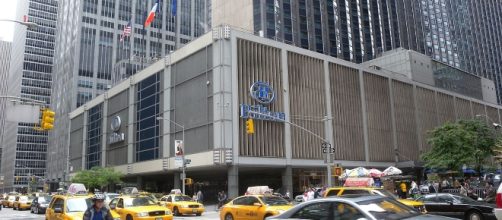There may not be much room in New York's Midtown for a community garden, but one of its best and globally known hotel names in the area has created a garden, of sorts, on its rooftop.
The New York Hilton Midtown has welcomed some of the sweetest guests on their registry book -- and there are lots of them. Just because there are many, they will not be taking up much room, and they were put to work the minute they arrived.
After all, isn't that what honey bees do? They work, all day, and the end result is pure sweet honey grown on their rooftop that they will then supply to their guests and include on the kitchen and even bar menus.
300 pounds of honey expected annually
Manhattan made beekeeping legal in 2010, and since then the city has increased the bee population by 35 percent since last year. That is not only a sweet deal but a very lucrative one, too! These very small, but extremely busy workers are expected to produce more than three hundred pounds of honey every year.
Their new home will be the fifth-floor roof garden on Sixth Avenue, and they brought guests, 450,000 guests -- all with the experience needed to make honey.
Red carpet treatment
To the thrills of insect enthusiasts and on lookers, the team arrived at the hotel in a checkered cab and were rolled in on a red carpet. Six queens got out of that cab -- queen bees -- all with carefully picked names.
One was honored with the name Connie, after Conrad Hilton, the founder of the Hilton hotel chain.
In case you're wondering what the other queens are called, their names are Beatrice, Shelby, Ruby, Phoebe, and Suite B.
A good ecosystem for the bees
Maintaining the hives will be the job of Andrew Cote, the same beekeeper who maintained a similar bee hive system, before it closed for renovations in the winter, at the equally famous Waldorf Astoria hotel.
Cote, a fourth generation beekeeper, said the grassy rooftop is the perfect habitat and an excellent location from the diverse flora in Central Park. The beekeeper said the hotel is in a "really good spot" to allow the bees to create and produce honey.
The bees arrived from Connecticut, where they were exceptionally bred -- no doubt. But from now on, they will all be taking up permanent residence in wooden Langstroth hive boxes.
The boxes will be strategically placed on the sixteen-thousand square food hotel rooftop garden.
The beekeeper believes the three-mile flight radius around Central Park is a prime position that will give the bees a variety of flowers and trees for them to feed on.


